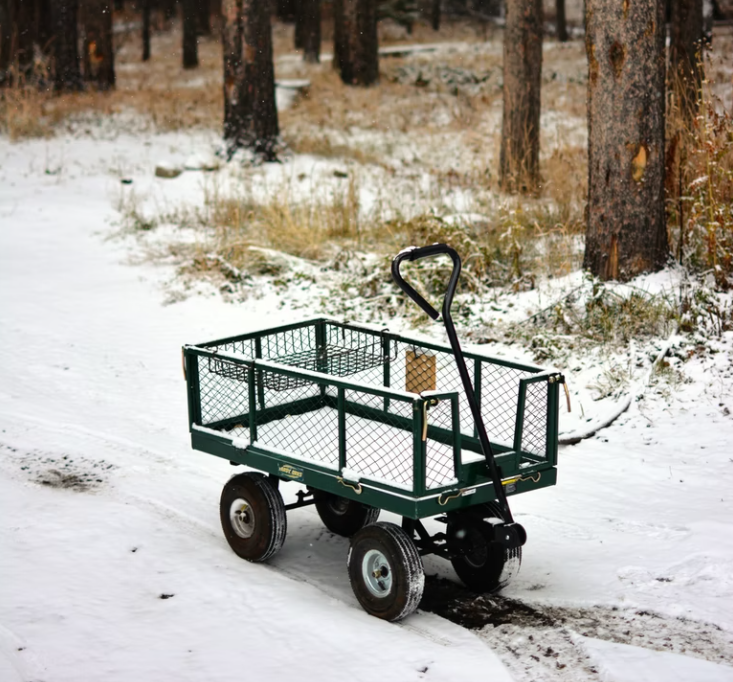Impulse, Momentum, Accel
Consider a 0.75 kg wagon (Wagon 1) is pulled forward with a 2 N force for 2 seconds. Consider a second 0.75 kg wagon (Wagon 2) is pulled forward with a 4 N force for 1 second.
- Does Wagon 1 or Wagon 2 have the greater acceleration?
- Does Wagon 1 or Wagon 2 have the greater impulse?
- Does Wagon 1 or wagon 2 have the greater momentum change?

Expand Hint
$$$Force=mass\cdot acceleration=mass\cdot \frac{\Delta velocity}{\Delta time}$$$
Hint 2
Impulse is defined as
$$force\cdot time$$
, while momentum is defined as
$$mass\cdot velocity$$
, and the change in momentum is
$$mass\cdot \Delta velocity$$
.
Newton's second law:
$$$Force=mass\cdot acceleration=mass\cdot \frac{\Delta velocity}{\Delta time}$$$
We can rearrange the above equation to solve the acceleration for both wagons:
$$$a_1=\frac{F_1}{m_1}=\frac{2N}{0.75kg}=2.67\:m/s^2$$$
$$$a_2=\frac{F_2}{m_2}=\frac{4N}{0.75kg}=5.33\:m/s^2$$$
(1.) Wagon 2 has the greater acceleration.
Impulse is defined as
$$force\cdot time$$
, while momentum is defined as
$$mass\cdot velocity$$
, and the change in momentum is
$$mass\cdot \Delta velocity$$
. Therefore, if we multiple both sides of the second law equation by
$$\Delta t$$
:
$$$Force \cdot \Delta time=mass\cdot \Delta velocity$$$
$$$Impulse=Change\:in\:momentum$$$
$$$Impulse_1=F_1\cdot \Delta t_1=2N\cdot 2s=4\:N\cdot s$$$
$$$Impulse_2=F_2\cdot \Delta t_2=4N\cdot 1s=4\:N\cdot s$$$
(2.) The impulse is the same for both wagons.
(3.) Because momentum change is impulse, both wagons have the same momentum change.
(1.) Wagon 2 has the greater acceleration.
(2.) The impulse is the same for both wagons.
(3.) The momentum change is the same for both wagons.
Time Analysis
See how quickly you looked at the hint, solution, and answer. This is important for making sure you will finish the FE Exam in time.- Hint: Not clicked
- Solution: Not clicked
- Answer: Not clicked